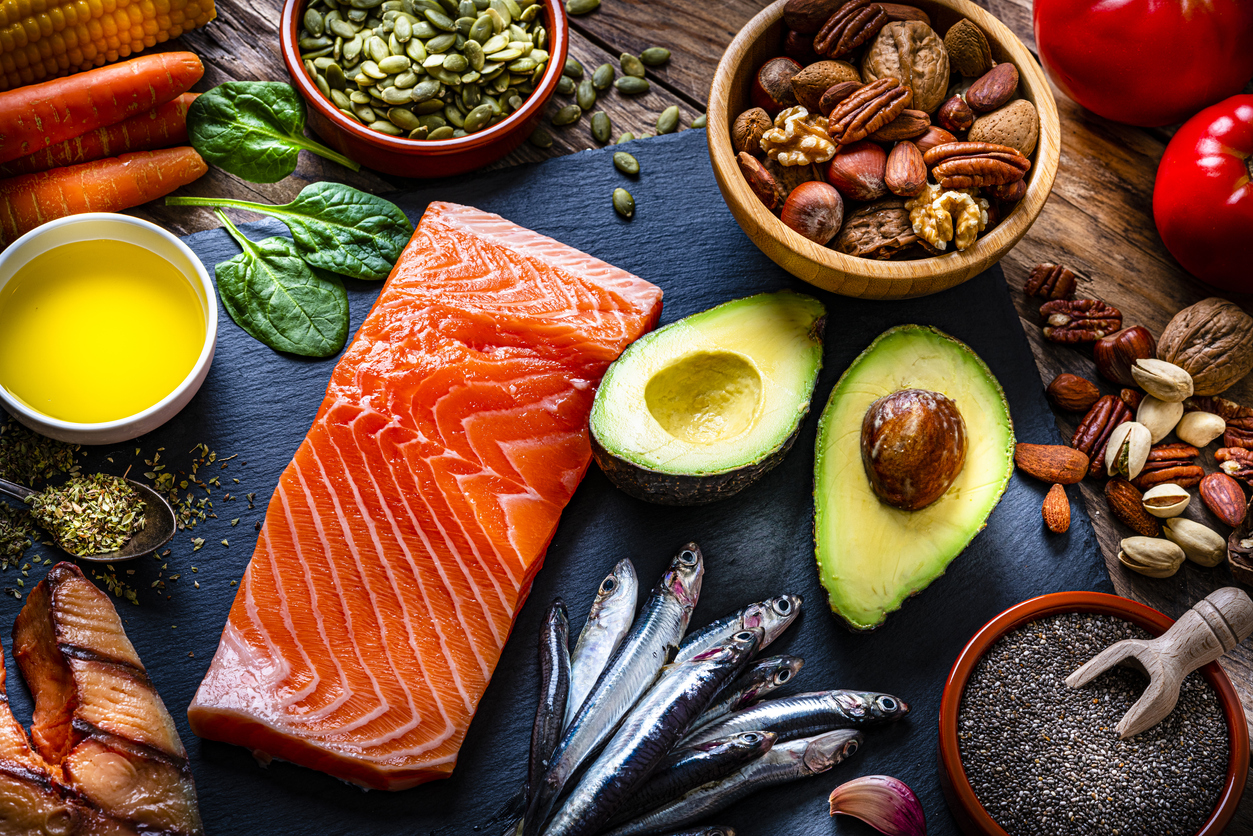With the news and social media feeds filled with stories of mounting cases of COVID-19 and staggering numbers of daily deaths caused by this virus, feelings of fear and dread are a reasonable response. To combat the paralysis of overwhelm and despair, arm yourself with the knowledge to improve your immune system and overall health, and implement the 5 lifestyle pillars for a vibrant life.
In an earlier blog, we focused on the recommended supplements that could help most everyone boost their immune system and which could help prevent becoming infected and could lessen the severity of the disease.
This blog will focus on how to take charge of your health by focusing on improving these 5 lifestyle pillars.
Nutrition:
As Anthelme Brillat-Savarin wrote in 1826 in Physiologie du Gout, ou Méditations de Gastronomie Transcendante: “Dis-moi ce que tu manges, je te dirai ce que tu es.” [Translation: Tell me what you eat and I will tell you what you are.]
The modern saying is: “You are what you eat.” So what should you eat to support a vibrant life and to boost your immune system?
Fruits and Vegetables
Eat a rainbow of fruits and vegetables. The colors of the food rainbow are red, purple/blue, orange, green, and white/brown. The reason to eat the variety of colors is because each color has its own unique disease fighting properties. Each day have 9-13 servings of a colorful variety of fruits and vegetables to obtain a wide array of phytonutrients to boost gut microbiome.
Dietary Fiber
Years ago, many a grandmother advised her grandchildren to eat more roughage. Roughage is what we call fiber, the indigestible part of plant food, the soluble and insoluble fiber. Those grandmothers were wise women. A high-fiber diet has many benefits: helps maintain bowel health and normalizes bowel movements, lowers cholesterol levels, helps control blood sugar levels, and helps maintain a healthy-weight. Consume a minimum of 28-35 grains of fiber daily, preferably from whole foods.
Probiotics
Probiotics are live bacteria that provide health benefits when consumed in adequate numbers.There are two ways to get more good bacteria into your gut: fermented foods and dietary supplements. The most common fermented foods that naturally contain probiotics, or have probiotics added to them, include yogurt, kefir, kombucha, sauerkraut, pickles, miso, tempeh, kimchi, sourdough bread and some cheeses. Probiotics can help balance the friendly bacteria in your digestive system, prevent diarrhea, boost your immune system and reduce belly fat.
In addition to eating a rainbow of color fruits and vegetables, high fiber foods and probiotics, avoid foods high in saturated fat, added sugars and salt, which are known to negatively impact your immune system.
Stress Reduction and Stress Management
Even before our lives were upended from COVID-19, many Americans reported living with moderate to high levels of stress on a regular basis. While stress may be unavoidable, it can be managed. Small changes in your responses to stress can improve your resilience. When you find your shoulders up at your ears and your jaws clench, lower your shoulders, loosen your jaw and try one (or all!) of these stress reducers:
- Take deep breaths, center yourself and visualize yourself somewhere which brings you joy (a mountain meadow, a window overlooking the beach or an amusement park).
- Take a walk outside or put on fun music and dance.
- Grab a piece of paper and write down something for which you are grateful.
- Pause and consider if this is something you will even remember five years from now.
- Call a friend and catch up.
- Do something creative (write, draw, knit, cook, color).
- Watch a funny movie and laugh without restraint.
Sleep:
Deep, restful sleep for seven to eight hours daily is extremely important for optimal health. Sleep is as essential as food and water for survival. During sleep your brain stores new information and your body repairs your cells (that’s why it is called beauty sleep!).
Practice good sleep hygiene: keep a regular sleep schedule, turn off all screens (phones, TVs, etc.) and keep devices out of your bedroom while sleeping, and make sure your room is a cool, quiet and dark place.
Exercise:
Our bodies are designed to move, not sit at a desk all day and on the couch all night. Figure out what you enjoy doing from running miles to walking blocks to swimming in the ocean or backyard pool to having a dance party with your kids to weeding and planting in your garden. If you enjoy the activity you’re most likely to spend time doing it! A wide variety of exercise options can be found on the internet. Try something different: yoga, pilates, zumba, or crossfit.
Social Connection:
Humans are social creatures. While we may be physically distancing right now, we need to still have social connections. Have fun with those sheltering in place under your roof. Walk around the block and wave at neighbors (while maintaining a safe distance). Visit those who are isolated at home by talking through a window so as to keep a safe distance.
Think of other ways you can use technology to maintain human connection during this time of social distancing. While social media can help keep tabs on friends, make an effort to also call friends and family. Set up a Zoom happy hour with your bookclub. Arrange a video conference with far flung family members for a visit. Play multiplayer video games with friends from near and far.
A vibrant life is built on a foundation of these 5 lifestyle pillars. Dial in your diet, stress, sleep, exercise and social connections and you will be on the path to optimal health and wellness.
To your health.
Dianne Hinton NP, PA, IFM-C















